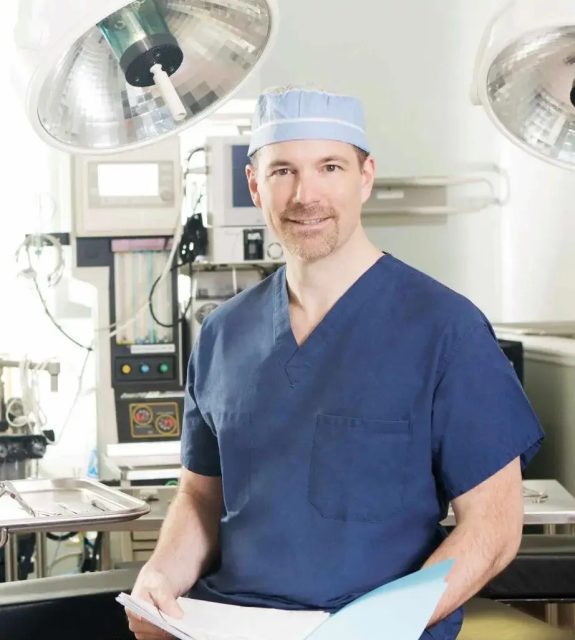When it comes to oral health, dentists often serve as detectives, deciphering the clues hidden in our teeth, gums, and overall mouth health. Like any good mystery, the causes behind common dental problems can be complex, but with the right approach, these oral health issues can be identified and treated before they become major concerns. Here, we dive into some of the most common dental dilemmas and how dentists solve these oral health mysteries.
 Photo Credit: Courtesy of Studio Romantic/Shutterstock
Photo Credit: Courtesy of Studio Romantic/Shutterstock
1. Toothache
A toothache can strike without warning, leaving patients puzzled about its origin. Sometimes the culprit is a simple cavity, but other times it’s not so straightforward. Dentists will first examine the area visually and use X-rays to look beneath the surface. Cracked teeth, worn enamel, and even sinus issues can cause discomfort in the teeth. If the tooth appears healthy, your dentist may look for signs of clenching or grinding (bruxism), which can cause sensitivity and pain over time.
2. Bad Breath
Chronic bad breath, or halitosis, is another mystery that often leaves patients wondering what went wrong. In most cases, poor oral hygiene is to blame—food particles left behind can break down and cause odor. However, it could also be due to dry mouth (xerostomia), which reduces the amount of saliva needed to wash away debris. More seriously, persistent bad breath could be a clue to gum disease, cavities, or even gastrointestinal issues. A thorough dental exam can help pinpoint whether the problem is oral or related to overall health.
3. Sensitive Teeth
Many people experience sharp pains in their teeth when eating hot or cold foods. This sensitivity can result from exposed dentin, the layer beneath the tooth’s enamel. But what causes this exposure? Erosion from acidic foods and drinks, aggressive brushing, receding gums, or grinding can wear down enamel and expose dentin, making teeth vulnerable. Dentists solve this mystery by identifying and treating the underlying cause, whether it’s using fluoride treatments to strengthen enamel or recommending a desensitizing toothpaste.
4. Receding Gums
Gum recession is a common issue, particularly as we age, but the cause isn’t always apparent to patients. Poor brushing habits, such as brushing too hard, can contribute, as can gum disease or genetics. Left untreated, receding gums can lead to tooth loss, so identifying the root cause is essential. A dentist may examine your brushing technique, evaluate your gum health, or assess your bite alignment to determine whether grinding or orthodontic issues are contributing to the problem.
5. Stained Teeth
Discoloration of teeth can happen gradually, often leaving people unaware of the changes until the staining becomes severe. Coffee, tea, red wine, and smoking are notorious for causing external stains. However, some stains may be internal, caused by medications, trauma, or even aging. Depending on the nature of the stain, your dentist will recommend professional cleaning, teeth whitening treatments, or other cosmetic options like veneers to restore your smile.
6. Bleeding Gums
Bleeding gums are often the first sign of gingivitis, an early stage of gum disease caused by plaque buildup. However, patients might not always connect bleeding with a serious problem, especially if it occurs while brushing or flossing. Dentists solve this issue by performing a thorough periodontal exam to check for inflammation, plaque buildup, and gum recession. Early intervention is key in preventing gingivitis from progressing into more serious periodontal disease.
7. Jaw Pain
Pain in the jaw can be a perplexing issue, with a variety of potential causes, from temporomandibular joint disorder (TMJ) to tooth infections or bruxism. TMJ disorder can result from misaligned teeth, arthritis, or even stress, leading to pain while chewing or speaking. Your dentist will often conduct a full assessment, including X-rays and a physical exam, to determine the cause. Once the issue is identified, treatments like bite guards, physical therapy, or even surgery may be recommended.
8. Dry Mouth
A dry mouth can be an uncomfortable condition, making it difficult to speak, eat, or even swallow. While it may seem like a minor issue, dry mouth is often a clue to larger health concerns. Medications, aging, or systemic diseases like diabetes can reduce saliva production, leading to a dry mouth. Dentists can help by identifying any contributing factors and suggesting treatments like artificial saliva, mouthwashes, or changes in medication.
Dentists are modern-day detectives, piecing together clues from a patient’s oral health history, symptoms, and physical exams to solve the mystery of what’s behind common dental problems. Just like any good detective, they rely on evidence and expertise to provide solutions. If you’re experiencing unexplained dental issues, don’t wait for the mystery to worsen. Schedule a visit with your dental professional and let them crack the case, ensuring your smile stays healthy and bright.
For any questions, visit Dr. Nammy Patel at Green Dentistry in San Fransisco, California.
For more information, visit Green Dentistry's social media:






















